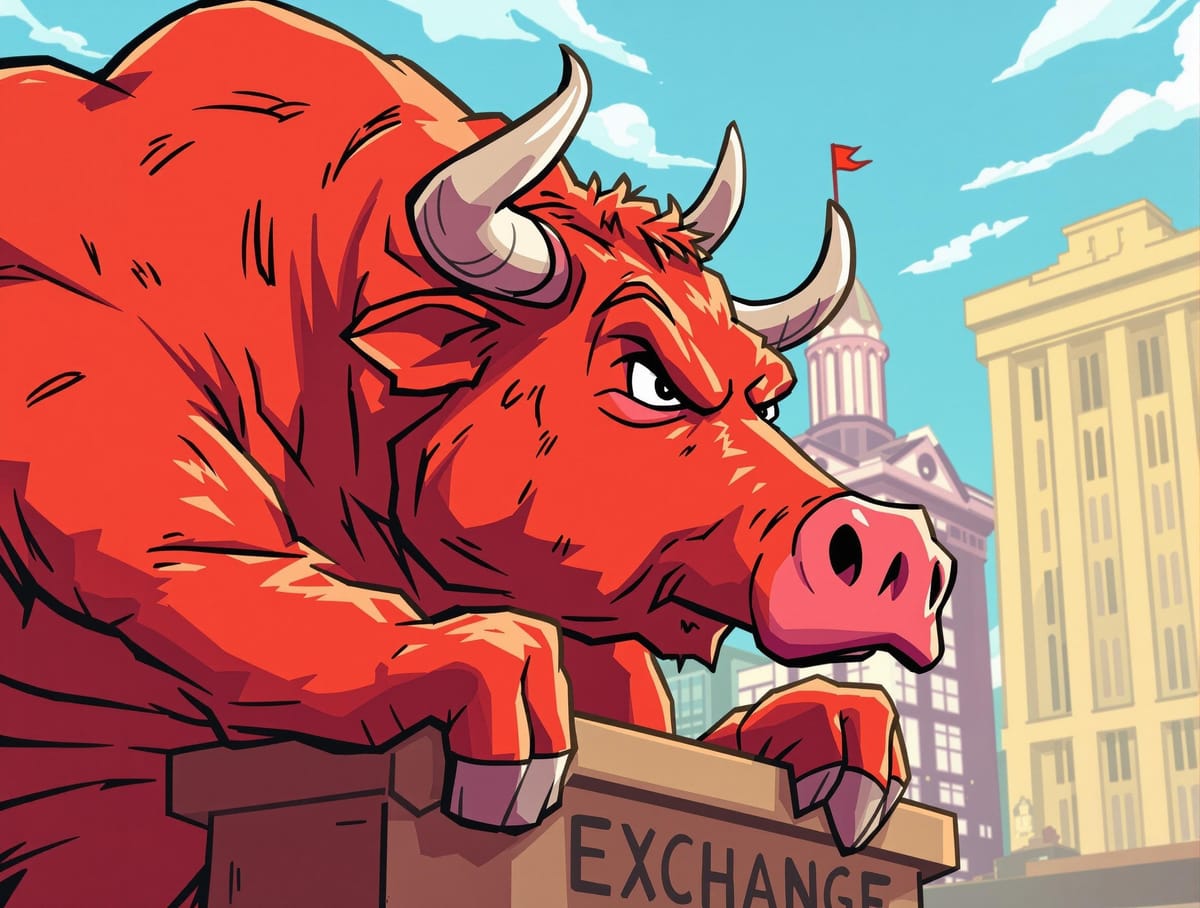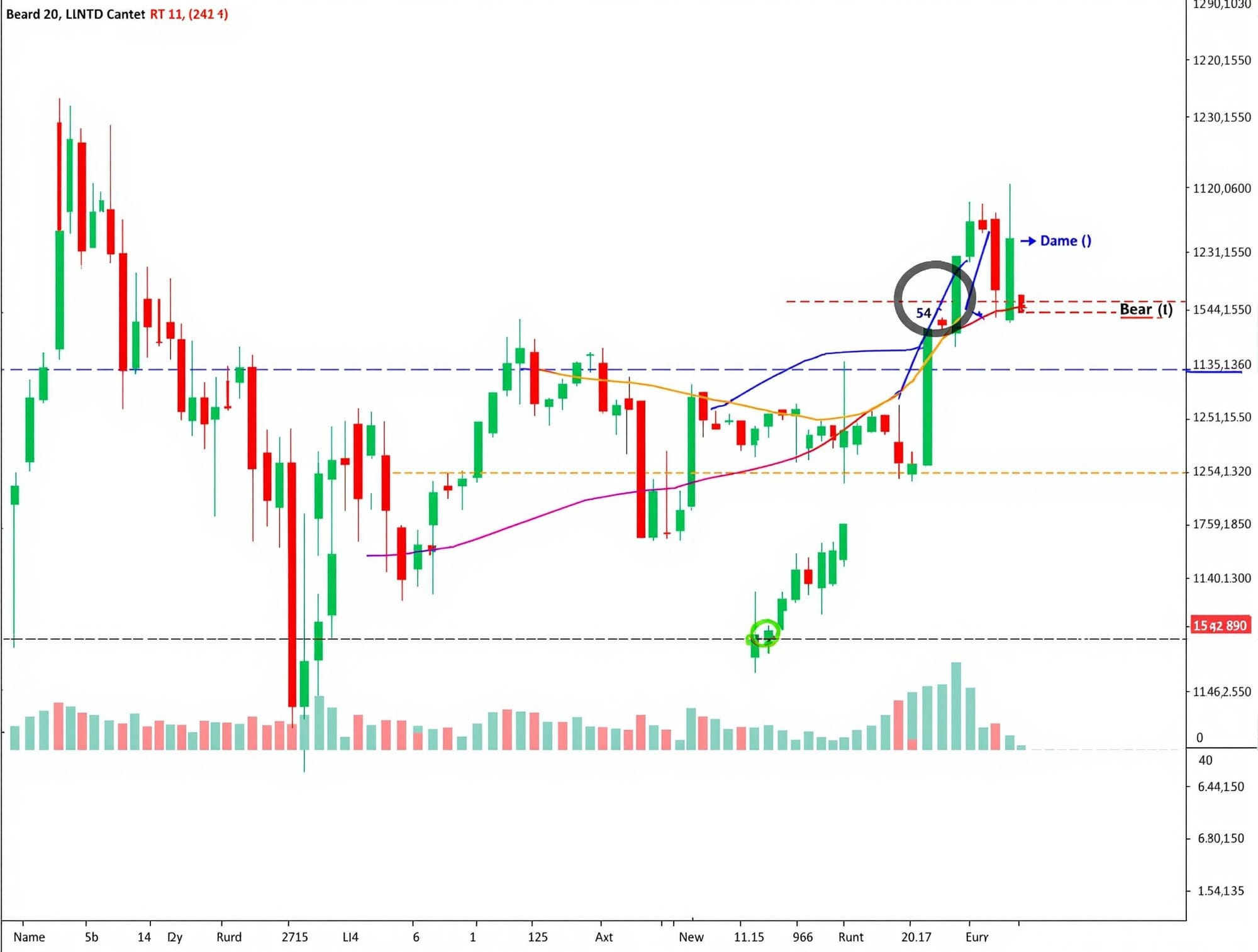Can You Swing Trade Futures? How to Do It

What Is Swing Trading and How Does It Work?
Can you swing trade futures? It depends on what length of time you consider a trade to be a "Swing Trade". Swing trading is a popular style of trading where traders hold positions for several days or even weeks to catch price swings. The main goal is to identify upward or downward trends and enter trades to profit from these short-to-medium-term movements. What does swing trade mean? It means focusing on the “swings” in the market rather than tiny minute-by-minute changes. Compared to day trading, swing trading strategies require less screen time since trades aren’t opened and closed within a single day. Swing trading basics involve technical analysis, patience, and a solid understanding of the markets you're trading. Swing trading Futures is something that is not super common in the retail day trading space. This is because the market closes 1 hour each day and over weekends. If the market opens and there is a gap in the opposite direction of the trade you took, this can lead to destroying your account with a significant loss.
Swing Trading for Beginners: What You Should Know
Swing trading for beginners may seem intimidating, but it can be approachable with the right preparation. It’s important to understand chart patterns, basic technical analysis, and how to manage risk efficiently. Beginners should start with a demo account or small trades to gain confidence and learn from real-time swing trading examples. Being patient and disciplined helps avoid the urge to overtrade. Have you wondered how much time you can actually commit to trading each week? Swing trading is a lot more common in trading stocks or options more so than Futures.
Swing Trading Basics vs Day Trading
Swing trading vs day trading comes down to timeframes and trade frequency. Day traders open and close positions within a single day, often making multiple trades daily, while swing traders hold positions over several days. Swing trading allows for a more flexible lifestyle since you don’t need to be glued to your screen all day. However, positions are exposed to overnight market risk, which may affect results. Which approach sounds like a better fit for your schedule and risk tolerance?
Can You Swing Trade Futures Like You Swing Trade Stocks?
Yes, you can swing trade futures using similar methods as when you swing trade stocks. Futures markets offer around-the-clock trading, deep liquidity, and leverage, making them suitable for swing trading strategies. Swing trading futures involves holding contracts for a few days to capture significant price moves, just like in stocks. The core difference is that futures contracts can represent commodities, indexes, currencies, and more. What unique opportunities do futures present compared to stocks you’ve traded before?
Swing Trade Futures vs Swing Trade Stocks
Swing trading futures vs stocks highlights several key distinctions. Futures contracts often move faster and are leveraged, offering bigger potential gains (and losses) with less capital. In contrast, stocks are more familiar to many traders, with clear regulations and company-specific news influencing price. Futures give access to diverse markets such as commodities, currencies, and indexes, broadening swing trading options. How do these differences affect your trading strategy choices?
Why Swing Trading Futures Works for Different Markets
Swing trading futures is effective across a wide range of markets because futures cover everything from crude oil to S&P 500, gold, and agricultural products. Each market has its own rhythm, volatility, and trading hours. With so many choices, swing traders can focus on the best market conditions for their strategies. Some find opportunities during periods when stocks are flat but commodities are moving. Which market would you find most interesting to learn about?
Swing Trading Futures vs Position Trading
Swing trading futures vs position trading mainly differ in holding periods. Swing trading aims for quick moves and frequent trades over days or weeks, while position trading involves holding trades for months in hopes of larger trends. Position traders need more patience and are exposed to more long-term risks and events. If you prefer more constant action and less waiting, swing trading may be more appealing than traditional position trading. Which fits your trading personality better?

Swing Trading Strategies That Work for Futures
Swing trading strategies are essential for consistent futures trading results. Some of the best swing trading strategy examples include breakout trading, range trading, and trend following. Each strategy suits different market conditions—breakouts catch big moves when prices break ranges, while range trading exploits predictable up-and-down moves in flat markets. Testing multiple swing trade strategies helps traders find what works best for their preferred futures markets. Are you open to experimenting with different swing trading futures strategies until you find your niche?
Best Swing Trading Strategy for Futures Traders
What qualifies as the best swing trading strategy? Many futures traders use moving average crossovers, support/resistance breakouts, and momentum indicators. For instance, a trader might buy when the 20-day moving average crosses above the 50-day or sell when price breaks key support. No single “best” strategy fits all, but combining technical analysis with strict risk rules often yields solid swing trading results. Which technical signals would you trust most for spotting swing trading opportunities?
Swing Trading Patterns to Watch on the Charts
Swing trading patterns, such as bull flags, head and shoulders, double tops/bottoms, and triangles, help traders spot trade setups quickly. Recognizing these patterns early can boost your odds of catching the next swing move. For example, a bull flag pattern signals continuation after a sharp rally, making it a favorite among swing traders. Practicing chart recognition skills is key to improving swing trading futures performance. What chart patterns have you found easy to identify?
Risk Management
Risk management is essential to protect your trading capital. Many swing traders risk only 1–2% of their account per trade and always use stop-loss orders. Diversifying trades and having clear exit strategies prevent big losses if the market turns. Tools for managing risk include limit orders, trailing stops, and position sizing calculators. Are you prepared to stick to a strict risk management plan even when emotions are high?
How to Start Swing Trading Futures
Starting swing trading futures is easier than ever with modern technology and information. Begin by learning swing trading basics and practicing in a risk-free demo environment. Next, open a brokerage account that supports futures trading and select a swing trading software that displays real-time charts, technical indicators, and order execution. Remember, a swing trading program isn't just about flashy features—it must be reliable and user-friendly. What features would make a swing trading platform most useful for you?
Choosing the Right Swing Trading Program or Platform
Choosing the best swing trading platform starts with identifying your needs. Look for a platform with low fees, fast trade execution, and comprehensive charting tools to analyze swing trading patterns. Some platforms integrate with news feeds and offer access to algorithmic swing trading software, which can speed up decision-making. It’s smart to test a few platforms before committing. How much value do you place on simplicity versus advanced features?
Best Swing Trading App and Features to Look For
A great swing trading app should offer alerts, mobile charting, easy order entry, and seamless account management. Many top apps provide advanced features like custom watchlists, real-time notifications of swing trading examples, and integration with other trading software. Speed and reliability are key, especially when you need to exit a position quickly. Would a mobile app help you stay on top of your trades during a busy day?
Swing Trading Services vs DIY: What’s Better for Beginners?
Swing trading services offer signals, education, and support, which can help beginners. A DIY approach provides more flexibility and skill-building, but can be overwhelming without a guide. The best swing trading service can reduce your learning curve, but it’s important to choose reputable, proven providers. Many new swing traders benefit from a hybrid approach—learning with support before branching out on their own. What would help you feel more confident when you start swing trading?

Can You Use Funded Accounts to Swing Trade Futures?
You can swing trade futures using a funded account, which means trading with someone else’s capital rather than risking your own. Many online prop trading firms and networks offer these opportunities to qualified traders. Funded accounts give access to larger trading sizes, but there are strict trading rules to follow. Swing trading futures in a funded account requires discipline and adherence to the provider’s guidelines. Have you ever considered scaling your trades using a funded trading account?
Swing Trading Rules in a Funded Futures Account
Every funded futures trading program has its own swing trading rules, covering risk limits, holding periods, max position sizes, and acceptable markets. Often, traders must close positions ahead of major news events or outside regular trading hours. Violating these rules may lead to account suspension or loss of funding. Review the rulebook closely before you begin. Are you ready to adapt your swing trading strategies to fit extra requirements?
What to Know Before You Start Swing Trading with Funding
Before starting, understand both the benefits and restrictions of trading with a funded account. While you risk less personal capital, you also share profits with the funding provider and must operate within their rules. Consider your trading style: can you be consistent and disciplined with someone else’s money? Research the reputation of any funded futures network and look for transparent fee structures. Does the idea of trading under close supervision appeal to you?
Final Thoughts: Can You Swing Trade Futures?
Swing trading futures is a practical, flexible way to capture mid-term market moves, whether you’re new or experienced. Between advanced platforms, proven swing trade strategies, and funded account opportunities, there are many ways to get started. The futures market’s diversity makes it accessible for developing and refining your skills. Have you found the right mix of tools and support for your swing trading journey?
FAQs About Funded Futures Network
What are funded trading accounts, and how do they work?
Funded trading accounts give traders access to capital provided by a company or network, allowing them to trade futures without risking much of their own money. If you meet certain standards and pass an evaluation process, the funding network lets you trade their funds while you keep a portion of any profits. The company typically covers losses according to their rules, which limits your personal financial risk. This model helps skilled traders grow faster, even if they don’t have a large account balance. Have you considered how a funded trading account could boost your trading goals?
Can I swing trade futures with a Funded Futures Network account?
Yes, you can swing trade futures with a Funded Futures Network account, but you must follow their specific swing trading rules. Many funded accounts allow traders to hold positions overnight or for several days, as long as you stay within assigned risk and margin limits. It’s important to check if the network supports your desired swing trading strategies and futures markets. Some providers may restrict certain positions around high-impact news events or require stop-loss orders on every trade. Are you ready to adapt your swing trading approach for a funded environment?
Does Funded Futures Network offer affiliate programs?
Many funded futures networks offer affiliate programs that reward you for referring new traders to their platform. These programs often provide commissions or bonuses when someone signs up and becomes active using your referral link. Being an affiliate can be an extra income stream, especially if you have a network of fellow traders or run an educational site. Check each network’s terms to see what requirements and payouts are offered. Could being an affiliate help you grow your presence in the trading community?
What are the rules for trading in funded accounts?
Trading in funded accounts comes with specific rules designed to protect both you and the funding provider. These usually include strict daily and maximum loss limits, rules on position sizing, and prohibited trading during certain market events or hours. Violating the rules could result in reduced buying power, temporary suspension, or even loss of your funded status. Always read and fully understand the rulebook before you start trading with funded capital. Do you have strategies in place to ensure you consistently follow these guidelines?
How do I become a funded trader with Funded Futures Network?
To become a funded trader with Funded Futures Network, you generally need to pass their evaluation or combine trading challenge. This process tests your swing trading basics, risk management, and consistency over a set period, often with demo capital. If you pass, you’re granted access to live trading capital under their rules. Maintaining discipline and sticking to your best swing trading strategy raises your chances of success. What steps are you taking to prepare for becoming a funded trader? If you have more questions about become a funded trader feel free to reach out!



